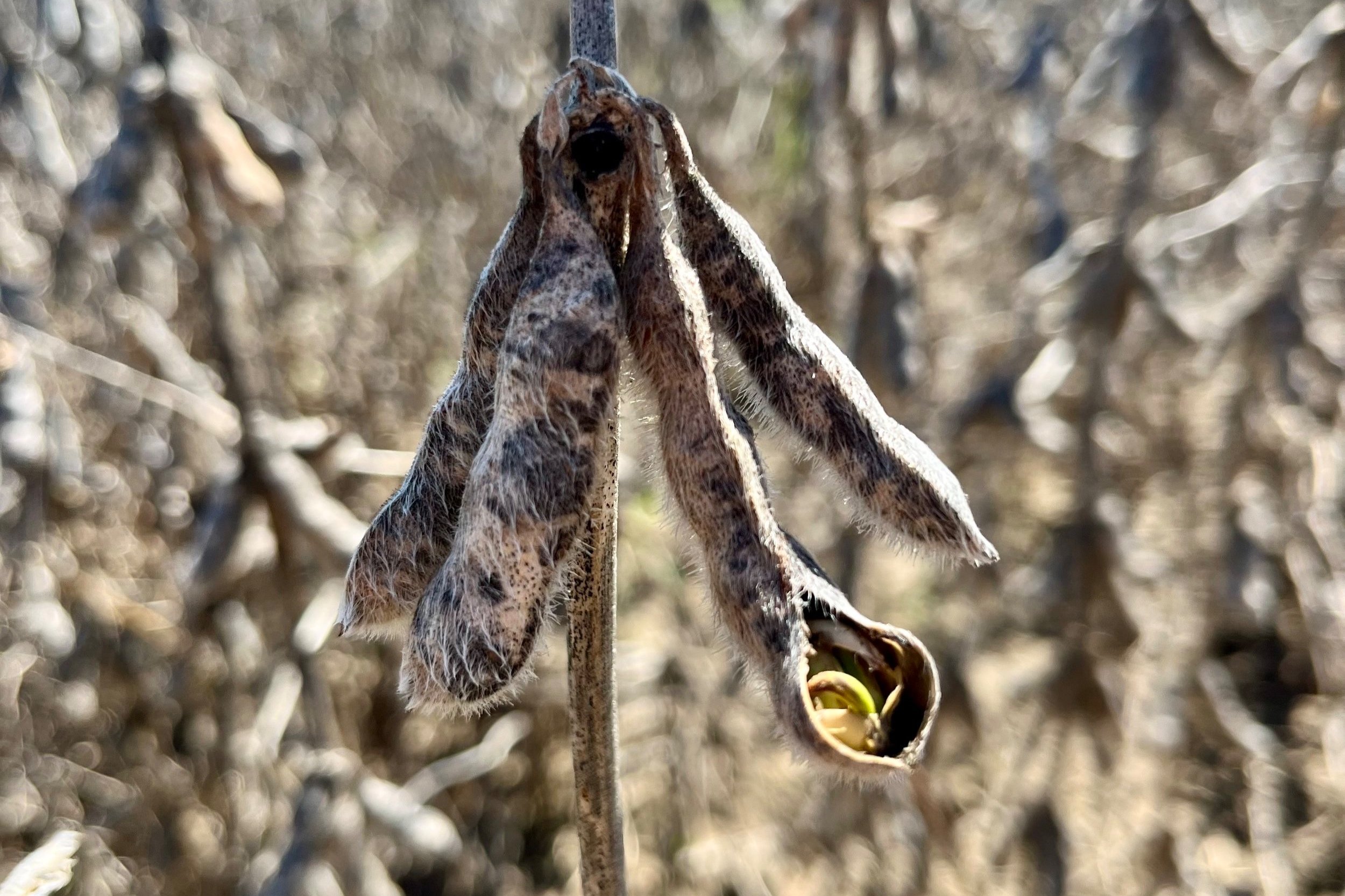Louisiana Soybean Farmers Call for Disaster Relief
Soybeans beginning to sprout at Wil Miller’s farm in Concordia Parish.
In August, parts of Louisiana saw over 20 inches of rain fall in just two weeks, causing devastating damage to crops, particularly soybeans. Many farmers had already harvested their crops, but the rain caused a significant decline in the quality of the beans, leading to a reduction in market value from around $15 per bushel to just $4.25 per bushel for the salvage price. This shortfall is not adequately covered by crop insurance, leaving farmers struggling to make ends meet.
Wil Miller, a soybean farmer in the state, had more than 2,000 acres of top quality soybeans ready to harvest when the rains hit. He explained, “We'd had a lot of sunshine throughout the summer and sunshine and water equals a great crop. The irrigated crop was looking phenomenal. And then it still kind of was…after everything you went through to still have the yields we had, you know, you had a jam up crop in the field that just got ruined."
This is a common story for farmers across the state, from East Carroll down to Concordia Parish, who all saw a significant decline in the quality of their soybeans due to the rains. Andy Brown, the National Affairs Coordinator at the Louisiana Farm Bureau Federation, has been working on this issue since the rains stopped in August and is now on Capitol Hill with Farm Bureau leaders, advocating for disaster relief for the affected farmers.
Louisiana Farm Bureau leader in Washington, D.C. posing outside of the U.S. Department of Agriculture on a trip to advocate for disaster aid after a devastating crop year. From left to right: Scott Wiggers, Kellon Lee, Andy Brown, Garrett Marsh, Wil Miller.
"It's great to have leaders who are willing to step up and represent their peers back home up here in Washington, D.C.. And these trips are vital to the work that Louisiana Farm Bureau does year round," Brown said. "The number one thing that farmers can do when a policy's affecting them is tell their story."
The farmers are calling for timely disaster relief, as timing is critical in farming. As Miller explained, "Everything in farming is timeliness and including government aid on disaster, it needs to be timely."
In addition to the immediate financial struggles caused by the decline in the quality of their crops, the farmers are also concerned about the long-term effects of the disaster. Many fear they will have to take out loans or sell off land to make ends meet, leading to a decrease in the number of farmers in the state. This could have a ripple effect on the agriculture industry and the economy as a whole.
The farmers are hoping for a quick resolution to the disaster relief issue so they can focus on the future of their farms. As Brown stated, "we're here to see what we can do to try to help our farmers back home.”
It remains to be seen what kind of aid will be offered to the affected farmers, but it is clear that their voices are being heard and their stories are being told on Capitol Hill.



